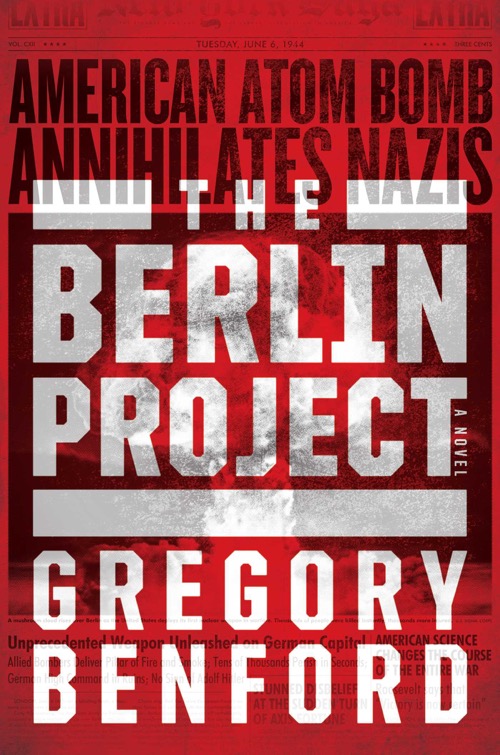Reading Idea: The Berlin Project
The Berlin Project
by Gregory Benford
$7.99 on Kindle
I know Gregory Benford as a writer of top-notch, hard science fiction. He's also an astrophysicist. And now he's written an alternate history of the development of the atom bomb. This book is self-recommending. On John Scalzi's site, he described the book and what prompted him to write it.
I got the idea for this novel when I was working on nuclear matters as a postdoc for Edward Teller. Then decades later, heard it from the guy who was at its center, and who became my father in law, Karl Cohen. All that came together when I decided to go back to writing novels in 2012.
The year 1967 seems so distant now. I was finishing my PhD thesis in theoretical physics when two of my thesis advisors took me aside and said that, just to be safe, I should apply for two postdoc positions, not just one. It was that long ago. I turned down UC Berkeley, a professorship at Royal Holloway College, London (which had read a published paper and wanted someone in that area; I’d never heard of them).
So I decided to work with Teller. In the course of many calculations and conversations, he told me of a turning point in World War Two that few knew. I heard it later from Karl Cohen:
When Japan attacked Pearl Harbor, the effect on the US atomic program (Manhattan Project) was a one-year delay. The US Army was preoccupied with the new war in the Pacific; they failed to appoint a person to head the Manhattan Project with enough power. In 1941 the people in charge favored Urey’s centrifuge approach to producing the fuel instead of gaseous diffusion.
By 1942, General Groves was in and Urey was out of favor. Building the gaseous diffusion plant took longer than expected, and the result was a one-year delay in the project. The delay meant that the target changed away from Germany. The object of dropping an A-bomb over Germany was to prevent an invasion.
How many more concentration camp victims would have survived if the war had ended one year earlier? For one, Anne Frank. Most CC victims succumbed eventually to the rugged conditions… The difference between 1944 and 1945 as the end of the war is probably quite significant in terms of lives.
The central context for this novel came from the protagonist I chose to follow through it, Karl Cohen. I also folded in my experience of living in the US occupation of Germany in 1955-57, where my father commanded combat units.
Karl’s words made me think, because in the last year of war, whole societies collapsed. A million died each month, the Soviet Union captured many countries into subjugation, and the devastation of the Axis powers took decades to repair.
This entry was tagged. Reading Ideas Fiction Alternate History
